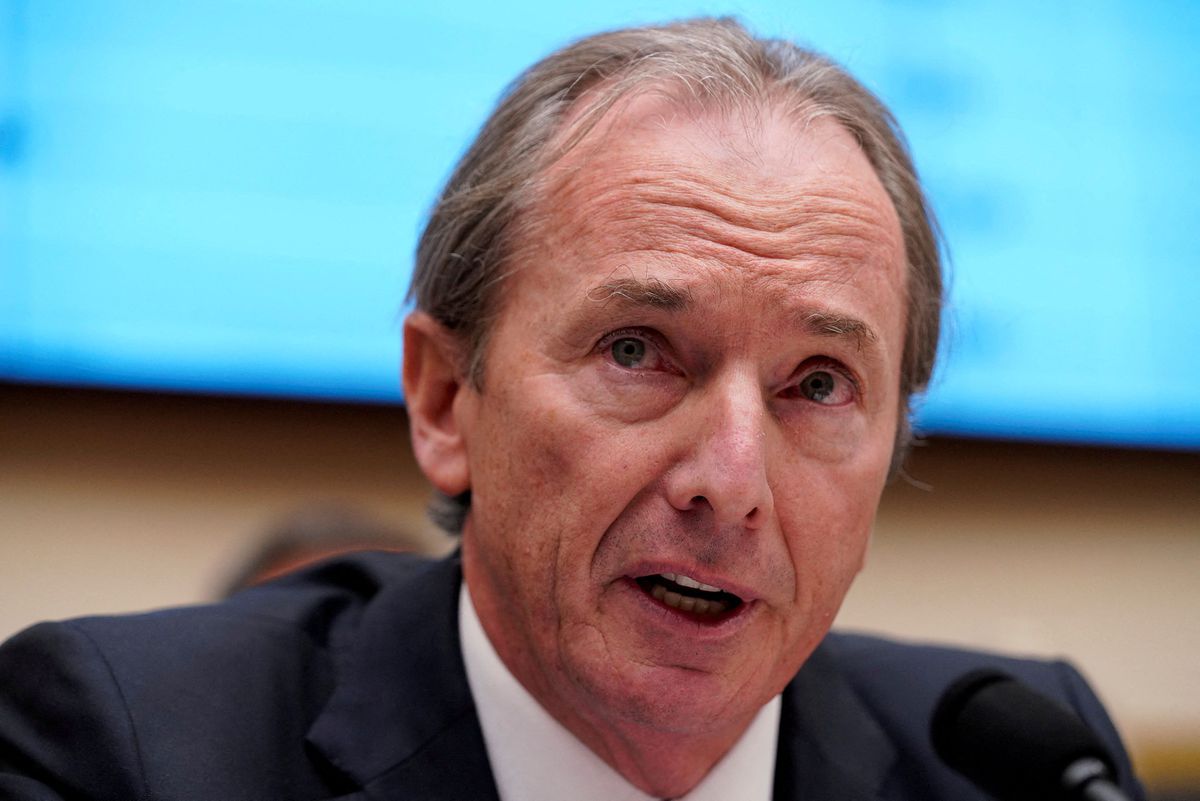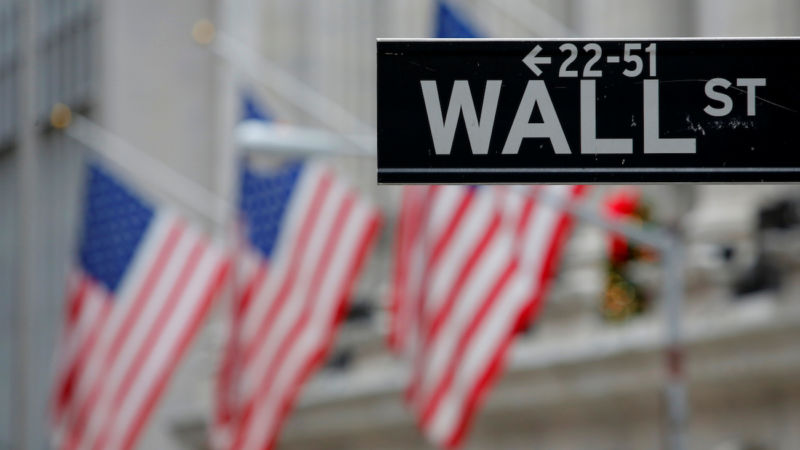In the latest interview in the Breakingviews Predictions series, Morgan Stanley CEO James Gorman tells market watchers "don't panic" in 2022
Don’t panic. 2022 is going to be “just fine.”
That’s according to Morgan Stanley CEO James Gorman, who oversees a $1.2 trillion money management empire and whose own compensation recently jumped to $35 million, the highest on Wall Street. Despite the heaving stock market and the likelihood of interest-rate hikes from the U.S. Federal Reserve, Gorman is generally optimistic about the market’s long-term health, even if there are a few fevers and hiccups along the way.
In a recent interview for the Thomson Reuters Breakingviews Predictions 2022 series, Gorman calmly explained that the market’s recent gyrations are “the natural disgorgement of a couple of years of unreal circumstances,” the result of which has been the distortion of everything from corporate valuations to 401Ks. To regain some balance in the market, he says a “re-sizing” is necessary, and perhaps even welcome.
Bursting bubbles
“You’ve seen companies trading at 30-, 40-, or 50-times their value”, and that’s a distortion, Gorman says. Add to that “free” money, record low interest rates, the collapse and restart of the economy due to the COVID-19 pandemic, a massive fiscal stimulus, supply-chain disruptions, crypto speculation, meme stocks, inflation — and, well, the distortions begin to pile up. As a consequence, a lot of “mini bubbles” have been created over the past two years, Gorman explains, “and those bubbles are getting burst.”
Among those bursting bubbles are once high-flying stocks such as GameStop and AMC, which are both down 35% to 40% year to date, and Bitcoin, which has lost 45% of its value since peaking in November.

“There’s a lot of movement and volatility going on in this market,” Gorman says, but adds that he isn’t particularly concerned about it. Like many on Wall Street, Gorman believes that “volatility is good up to a point,” as long as it doesn’t cause too much uncertainty. “With uncertainty, people stop raising capital, mergers don’t happen, clients don’t put money into the market — they put it into cash,” he says, and that level of anxiety isn’t helpful.
A need for balance
As far as 2022 is concerned, much is still unknown, Gorman admits, but he says he thinks the Fed is right to raise interest rates (he’s been calling for a rate hike for two years now, he notes), and that a market correction is long overdue. “I wouldn’t be surprised if by the end of the year the market ends up somewhere flat, but with it a lot of winners and a lot of losers,” he says. “I think it’s a stock-picker’s year this year.”
If so, it’s already been quite a year. In January, all the major U.S. stock indexes — the Dow Jones Industrial Average, the S&P 500, and the Nasdaq — recorded their worst weekly losses since the beginning of the pandemic. And in one of the most dramatic displays of volatility in modern memory, the Dow dropped more than 1,100 points on Jan. 24 alone, only to rebound back into positive territory by the end of the day.
To help calm the markets, most analysts expect the Fed to raise interest rates from three to five times this year. Yet, no matter how many times the Fed hikes rates, Gorman says, the markets need the medicine. “We’re about ten quarter-point increases away from what would mostly be considered normal,” Gorman insists, adding that “with a massive fiscal stimulus, very low unemployment, a growing economy, and inflation that is clearly more than transitory, zero interest rates don’t make sense.”
If he were running the Fed, Gorman advises that he would not only raise interest rates, he would “err on the aggressive side.” The market wouldn’t like it, he says, “but too bad. The market will have to get over it. The market doesn’t have a right to free money forever.”
Traditionalist that he is, Gorman says 2022 is the year “we need to get things back in balance.” And what is balance? “Balance is growth, fiscal stimulus, unemployment, inflation, and rates all working together,” he explains. “And right now, we’re not there.”
Two value propositions: crypto and work
To get there, a lot of things need to happen, he says. For the average investor, however, there are two actions that people probably shouldn’t do: Invest too much in cryptocurrencies or try to get by without a job.
Though Morgan Stanley does offer crypto investment options to their clients, Gorman himself isn’t sold on the value of crypto. “I have no idea what [crypto’s] intrinsic value should be,” he observes, “and I would recommend that people put no more than 2% of their net worth in it, because it’s highly speculative. I don’t think crypto is a fad, by the way, and I don’t think it’s going away — I just don’t know how you value it right now.”
Gorman also isn’t too concerned about the so-called Great Resignation, partly because it doesn’t affect his industry very much, and partly because he doesn’t think it can last. “You can resign and do nothing for a period of time, but once the government stimulus disappears, then it really doesn’t work, because you need income,” Gorman says. “For sure, people are making lifestyle choices about the kinds of jobs they want to do and where they want to live, but not working is not an option.”
Gorman himself plans to keep his job for the time being, but he admits that he will soon have to hand the reins to someone else. His replacement doesn’t have to know everything — “we all have skills deficiencies,” he says, but the ideal candidate needs to have the right blend of “temperament, judgment, balance, values, a strategic mind, the ability to withstand pressure and stress, the willingness to make a big call, and to accept that you’ll be criticized by some people before the outcome is clear”— much like the rest of 2022.







